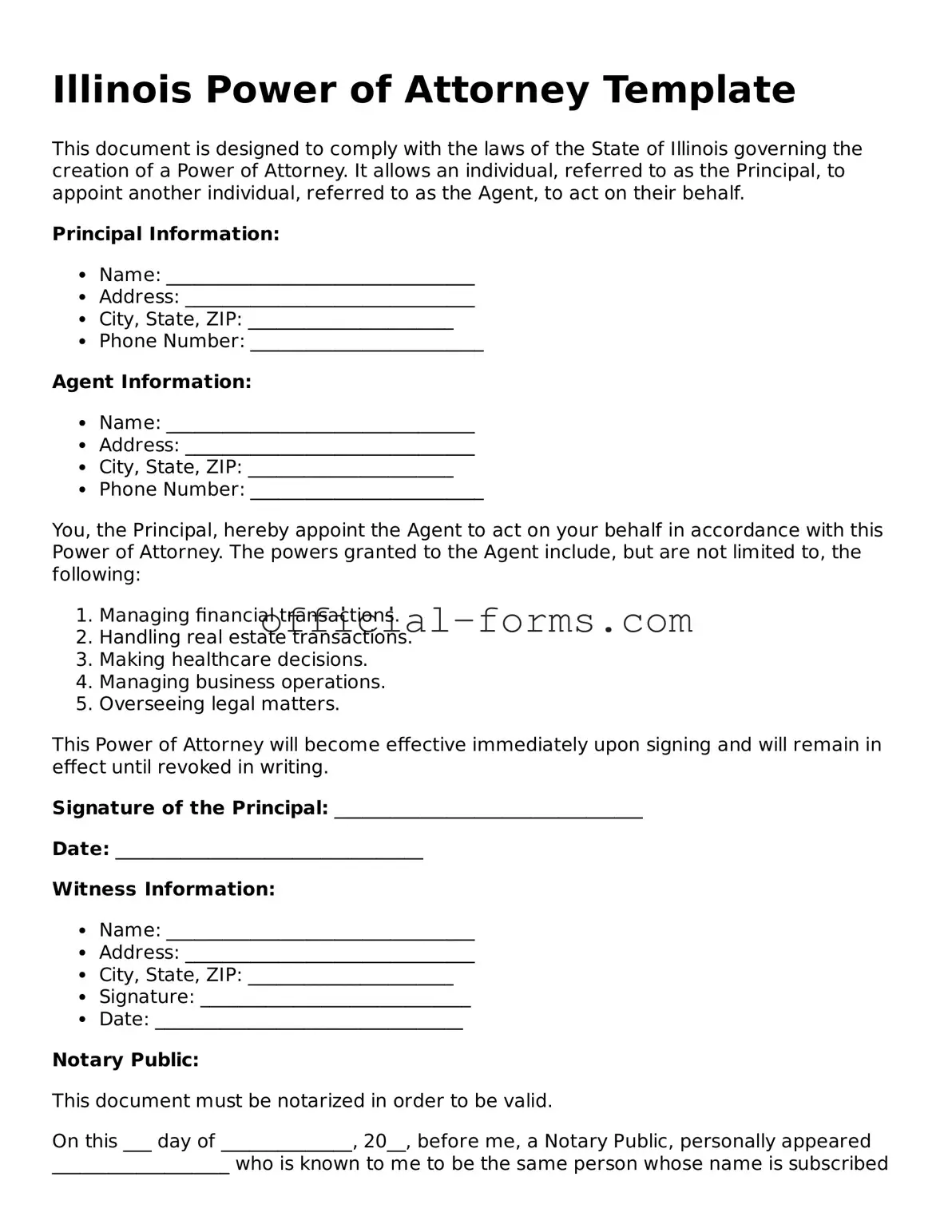Official Illinois Power of Attorney Document
The Illinois Power of Attorney form is a legal document that allows an individual to designate another person to make decisions on their behalf regarding financial or medical matters. This form empowers the appointed agent to act in the best interest of the individual, ensuring that their preferences are respected even when they are unable to communicate them. Understanding the nuances of this document is essential for anyone considering its use in planning for future needs.
Open My Power of Attorney Now

Official Illinois Power of Attorney Document
Open My Power of Attorney Now
Don’t leave your form incomplete
Finish Power of Attorney online quickly from start to download.
Open My Power of Attorney Now
or
➤ PDF
